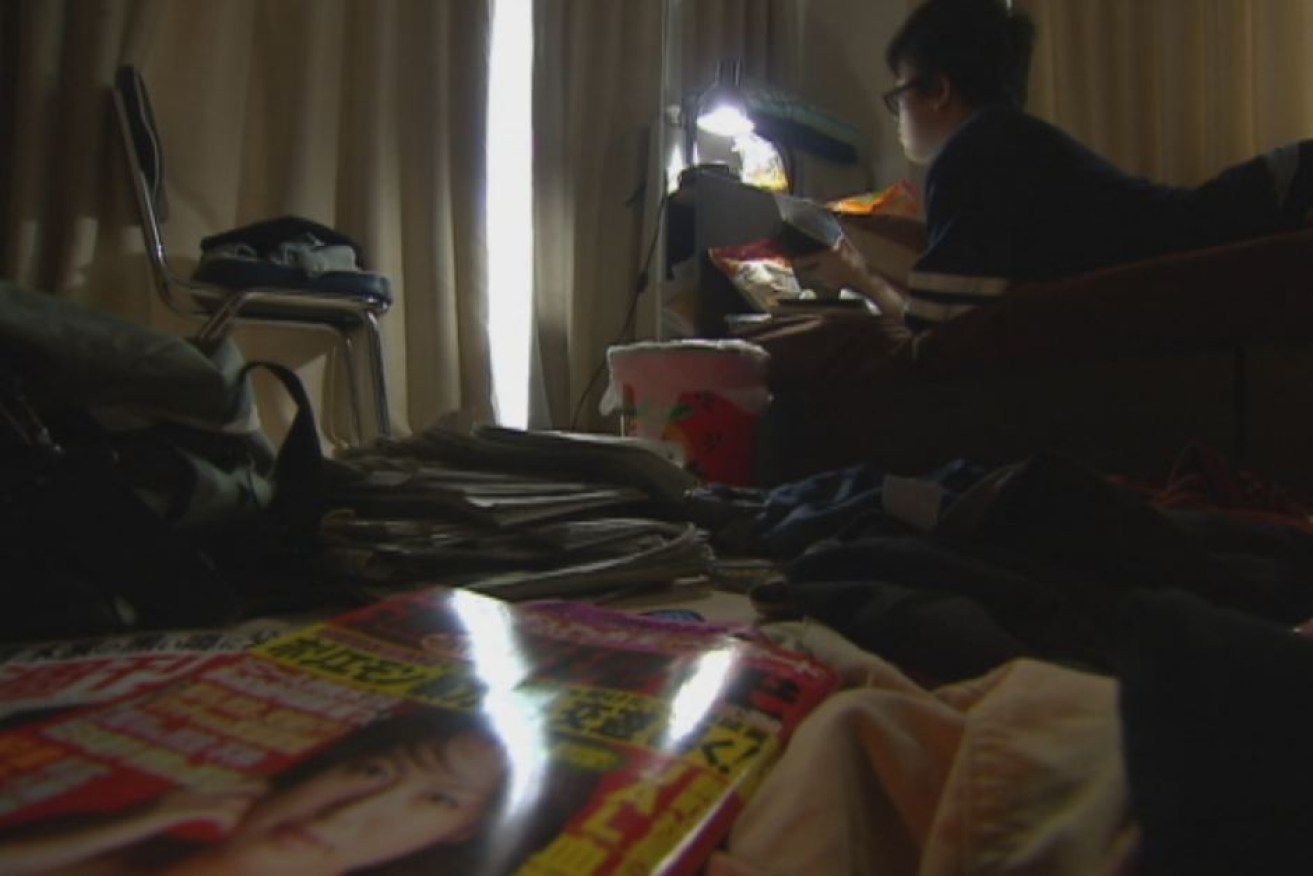Japanese men locking themselves in their bedrooms for years

ABC
It is one of the biggest social and health problems facing Japan – about one million people, mostly men, have locked themselves in their bedrooms and will not come out.
Japanese health professionals are now scrambling to stop the next generation from suffering the same fate.
Not only is the condition shattering families, it is also threatening the country’s economy.
• The search engine you’ve never used, but should
• The best way to tell someone they smell
• Why your hand wash is dangerous – and useless
For nearly three years, Yuto Onishi’s world was his small bedroom in Tokyo.
He slept during the day and lived at night, trawling the internet and reading manga – Japanese comics.
Mr Onishi, now 18, refused all contact with friends and family, sneaking out only in the dead of night to eat.
The Japanese call the condition hikikomori.
“Once you experience it, you lose reality,” Mr Onishi told the ABC’s 7.30.
“I knew it was abnormal but I didn’t want to change.”
“It felt safe here.”
School pressure led to social withdrawal

Almost one million Japanese, mostly men, refuse to come out of their bedrooms. Photo: ABC
In junior high school, Mr Onishi failed as a class leader and to cope with the shame and judgment of others, he withdrew.
For Mr Onishi and the estimated million Japanese like him, the pressure from families and society is too much to bear.
Dr Takahiro Kato is one of the few hikikomori experts in Japan.
“In Western societies, if one stays indoors, they’re told to go outside,” Dr Kato said.
“In Japan they’re not.
“Our play has changed, it’s all on screens and not real-life situations anymore.
“There are cultural reasons also, a strong sense of embarrassment and an emotional dependence on the mother.”
The longer a person stays in a room, the harder it is to come out
The causes and treatment are little understood, but Dr Kato is determined to stop the next generation of Japanese boys locking themselves in.
He is leading a team at Kyushu University to decipher the condition.
“Most case studies have only focused on the psychological aspect, but hikikomori is not just about mental illness,” he said.
“We’re working on the social and biological aspects as well and want to be the first to provide a multi-dimensional diagnosis.”
The road to recovery from hikikomori can be a long one and the longer a person stays in their room, the less likely they are to make it out.
One of Dr Kato’s patients, a 23-year-old, has been in therapy for a year.
He said a domineering mother and pressure to perform at school caused him to drop out and barricade himself in his room.
“I just wanted to suppress everything, put a lid on everything,” he said.
“I didn’t want to think … I didn’t want to feel.”
Rebuilding communication and trust key to opening the door

Dr Takahiro Kato is one of the few hikikomori experts in Japan. Photo: ABC
Dr Kato said recovery can only be successful if the dynamics of family interactions change, and that means the whole family has to be involved in counselling.
The first steps are to rebuild communication and trust.
Yuto has been out of his room for six months now.
The dream of travelling and working overseas forced him out. Early intervention worked.
“Facing your trauma is horrifying, it’s hard to do,” he said.
“If you can do it with somebody else, then they can show you a different vision of the future.”
Yuto is on the road back, but the pressing reality for Japan is that most hikikomori still remain in their rooms.








